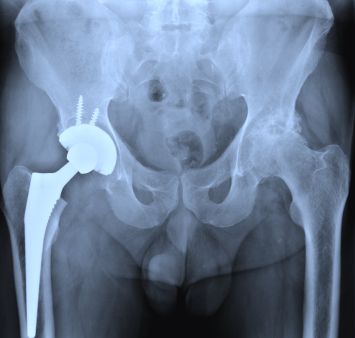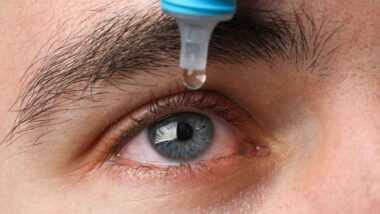High Hip Implant Failure Rate Leads to Lawsuits, Recalls
By Anne Bucher
 Johnson & Johnson manufactures a hip implant that features a ball and socket joint that is made entirely of metal. This metal-on-metal hip implant is different than older devices, which contain metal components in combination with ceramic or plastic materials. These older hip replacement systems are expected to last for at least 15 years before they will need to be replaced.
Johnson & Johnson manufactures a hip implant that features a ball and socket joint that is made entirely of metal. This metal-on-metal hip implant is different than older devices, which contain metal components in combination with ceramic or plastic materials. These older hip replacement systems are expected to last for at least 15 years before they will need to be replaced.
Metal-on-metal hip implants were initially considered to be more durable than the older devices. However, post-marketing data suggests that metal hip implants are subject to corrosion, which causes the device to shed metallic debris. This metallic debris can cause painful side effects, such as:
- Dislocated hip
- Death of tissue that surrounds implant
- Metallosis
- Toxic substances in bloodstream
- Non-cancerous tumors
- Cancer
- Degenerative heart disease
- Loss of bone strength
While these metal-on-metal hip implant complications are not life-threatening, they can be debilitating and painful. When complications arise, replacement surgery is required. The metal-on-metal hip implants have a significantly higher failure rate than older hip implants. Due to the higher than average failure rate posed by the device, the Johnson & Johnson metal hip implant was recalled in 2010.
Metal-on-Metal Hip Implants Have High Failure Rate
Manufacturers of metal-on-metal hip implants have been plagued by lawsuits and recalls. Because these metal-on-metal hip implants were similar to other devices that were currently on the market, the manufacturers were not required to perform extensive safety tests before releasing the devices on the market. The high failure risk was only revealed in post-marketing data.
The unusually high rates of early failure of these implants have caught the attention of doctors, patients, lawyers and the U.S. Food & Drug Administration (FDA), raising concerns about the long-term viability of these products. Several of these metal-on-metal hip implant devices have been recalled.
Since February 2011, the FDA has been investigating metal-on-metal hip replacements after receiving complaints that metal ions that are released can cause significant side effects and lead to device failure. The American Association for Justice recently submitted a letter to the FDA in support of legislation that would require manufacturers of metal-on-metal hip implants to conduct a more extensive safety review of their products in order to continue selling them.
Increasing Number of Metal-on-Metal Hip Implant Lawsuits
Johnson & Johnson has experienced a significant drop in profits because of the hip implant recall. The company has also been faced with numerous lawsuits from plaintiffs who have suffered hip implant injuries. Johnson & Johnson has set aside $3 billion to pay for damages and legal fees associated with these hip implant lawsuits.
If you or someone you love has suffered a metal-on-metal hip implant injury, you may be entitled to receive compensation. To learn more about your legal options, visit the DePuy, Biomet, Wright Medical Technology & Others, Metal on Metal Hip Implant Class Action Lawsuit Investigation. When you submit information about your hip implant injury, a class action attorney will conduct a free evaluation of your situation to determine whether you qualify to file a lawsuit. If your lawsuit is successful, you may receive compensation for your medical costs, pain and suffering, lost wages, and other losses you suffered because of the injury.
Updated May 16th, 2013
All medical device, dangerous drug and medical class action and lawsuit news updates are listed in the Drug and Medical Device section of Top Class Actions.
Top Class Actions Legal Statement















One thought on High Hip Implant Failure Rate Leads to Lawsuits, Recalls
My hip hurts daily after hip implant.